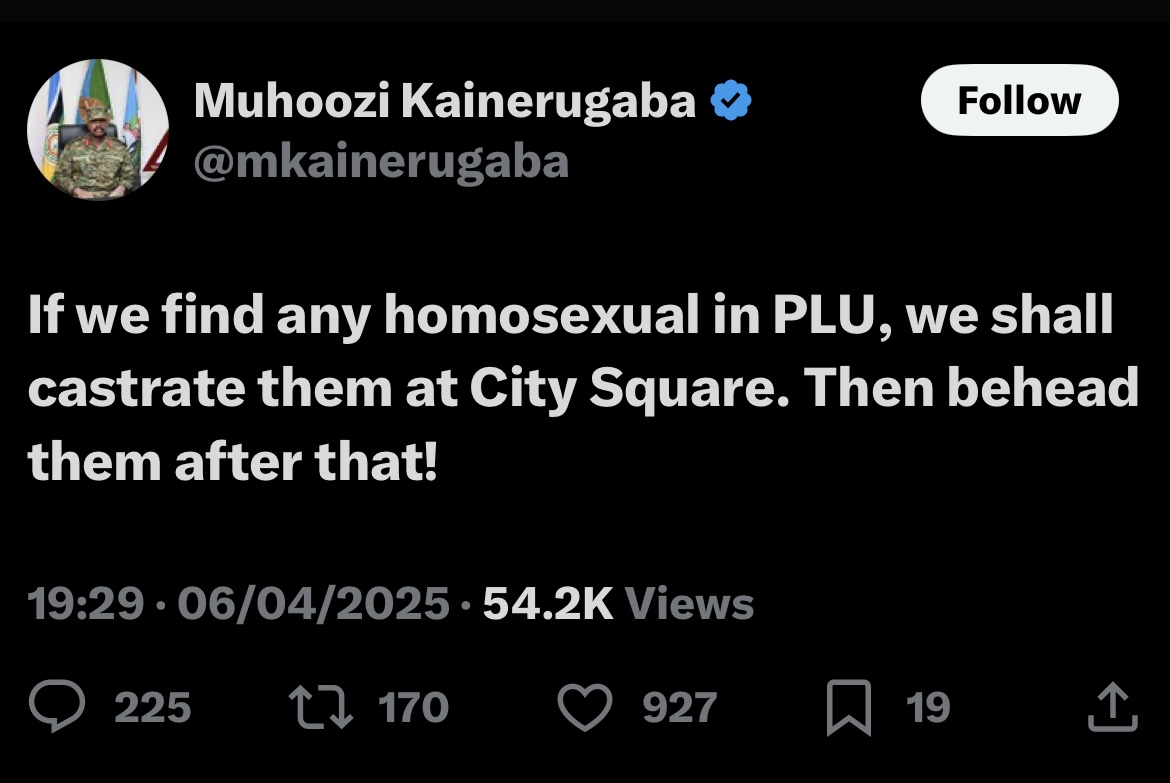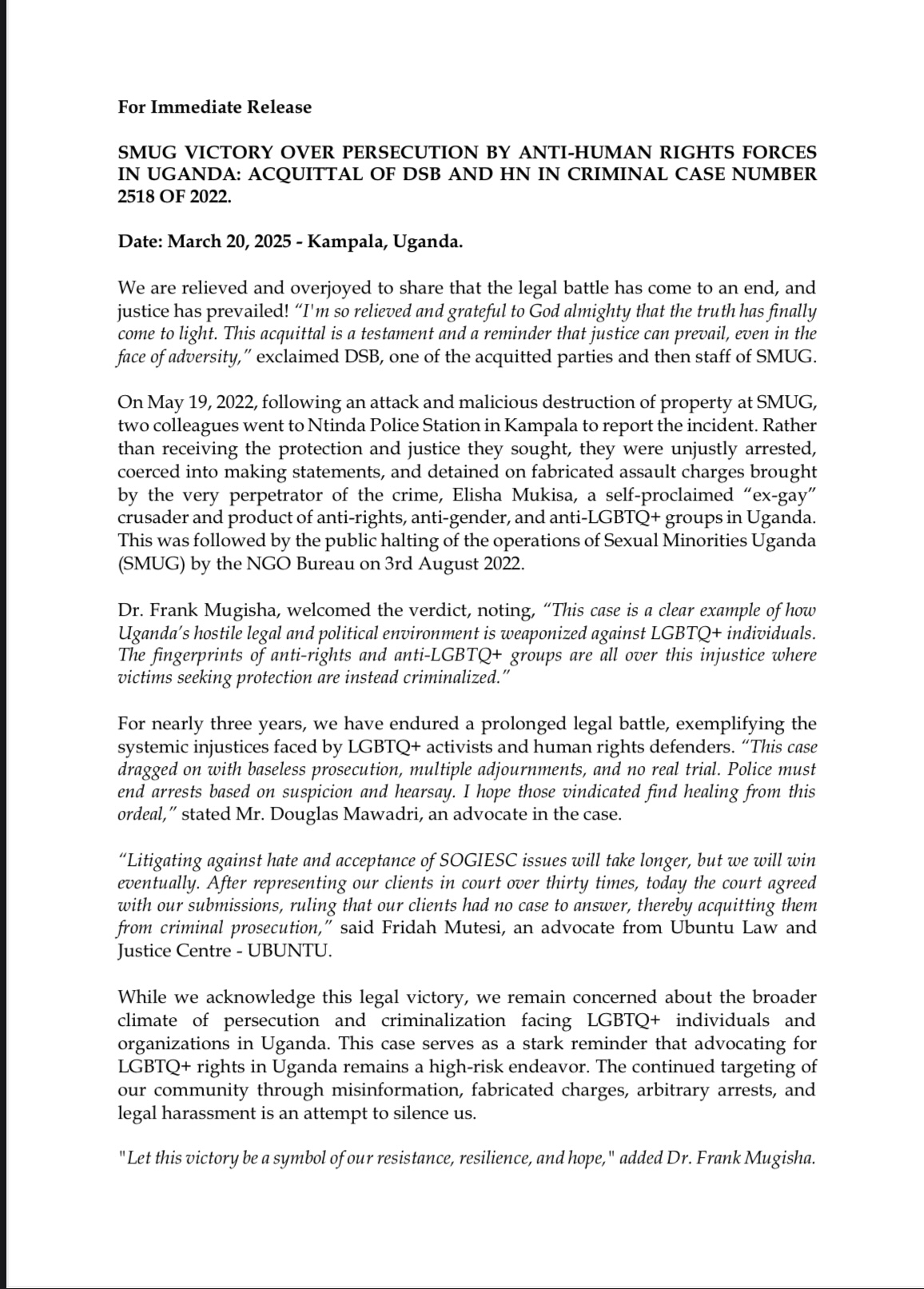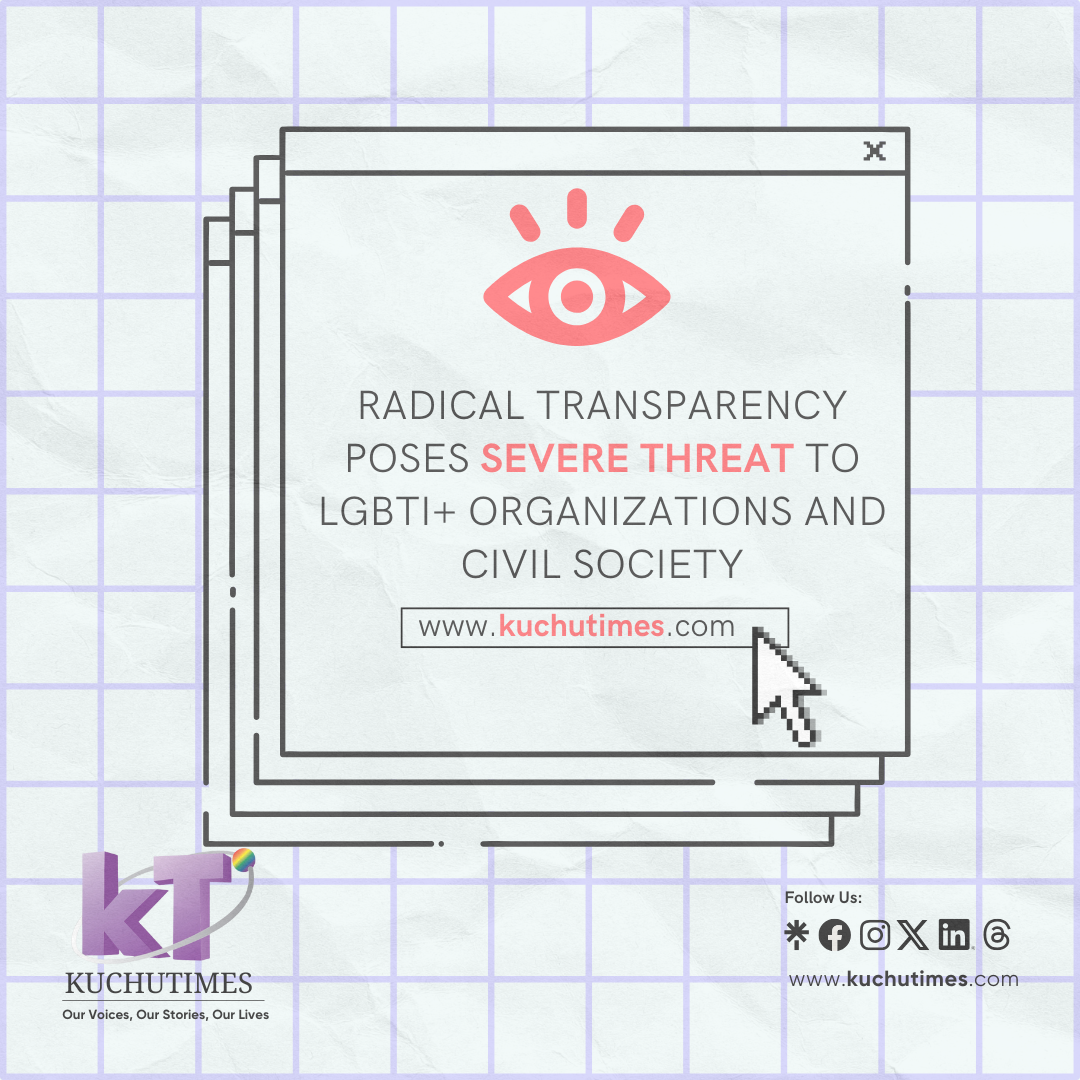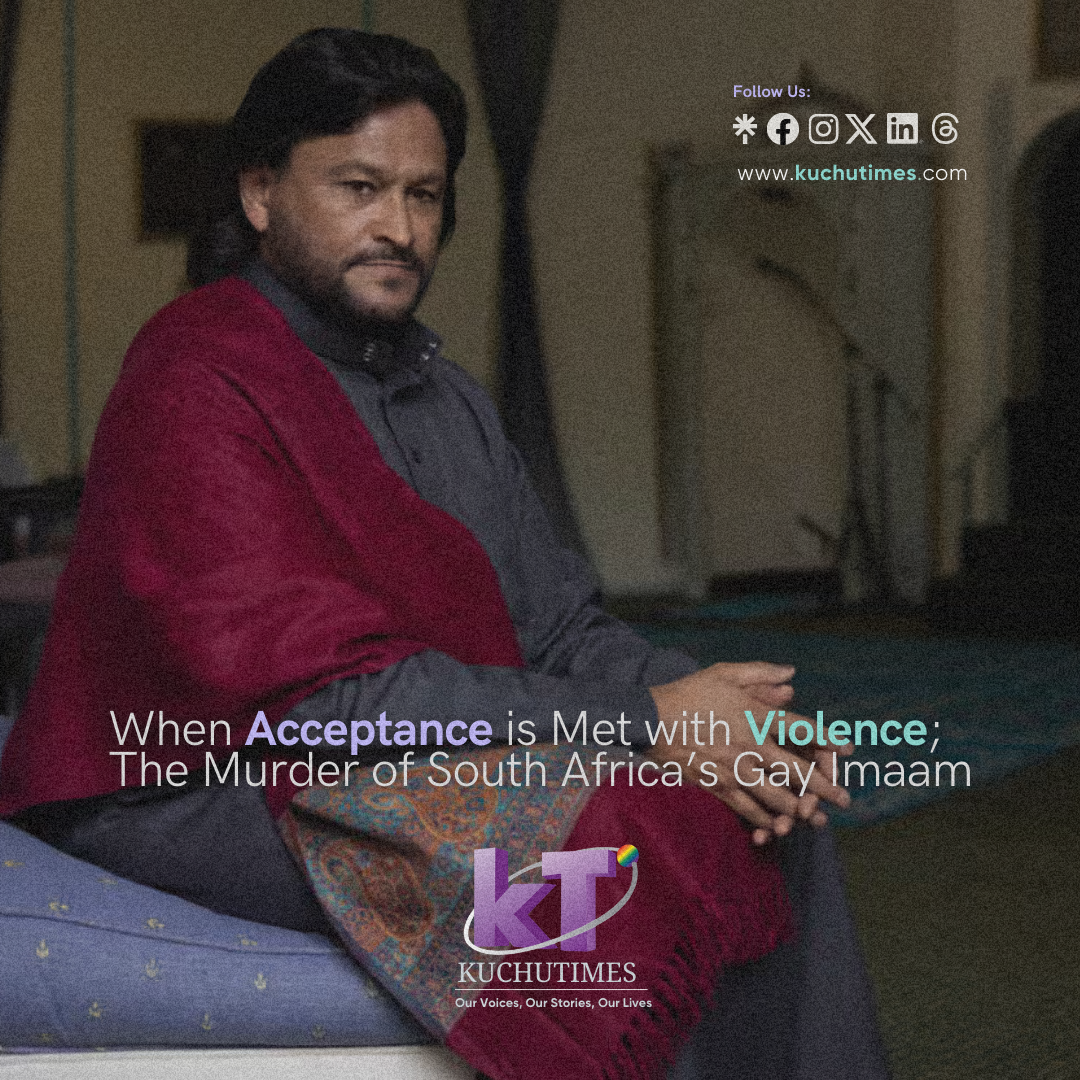The passage of Uganda’s Anti-Homosexuality Act (2023) only further legitimizes these violations. The Act not only criminalizes same-sex relationships but also codifies systemic violence including forced conversion therapies, life imprisonment, and the death penalty.
Under this legal regime, FAEs become tools of sexualized torture, used not to find truth, but to humiliate, dehumanize, and destroy. These acts are used in courts as “evidence,” a cruel irony considering their complete lack of scientific or forensic validity.
As Mutebi notes, this practice has become so normalized that it continues even in countries like Kenya, where courts have declared it unconstitutional. The 2018 Mombasa Court of Appeal ruling clearly stated that forced anal examinations violate constitutional rights to privacy, dignity, and protection from torture. And yet, they continue.
News
The passing of Pope Francis marks the end of a papacy that, despite its challenges and critics, carved an unforgettable legacy—particularly for LGBTI persons around the world. His approach to faith was deeply rooted in compassion, justice, and an unwavering commitment to the dignity of all people, regardless of gender or sexual identity. Pope Francis […]
Activists, journalists, and human rights defenders, many of whom already navigate threats both online and offline now face the added burden of potential state surveillance. This not only curtails freedom of expression but also creates a chilling effect across civil society, pushing critical voices further into the shadows.
This tool’s arrival echoes a broader trend of digital authoritarianism on the continent, where surveillance is weaponized to suppress dissent. But resistance is possible. Civil society must push for transparency and legal safeguards that protect digital rights. International allies must hold governments accountable, and tech platforms must enhance protections for vulnerable users.
Uganda is already grappling with the devastating impact of the Anti-Homosexuality Act of 2023, which imposes severe penalties including the death sentence for consensual same-sex relations. The law has not only legitimized discrimination and hate, but also emboldened ordinary citizens and state actors alike to act with impunity against LGBTQ+ people. In this environment, Muhoozi’s words are not empty; they are fuel to an already raging fire.
While we acknowledge this legal victory, we remain concerned about the broader climate of persecution and criminalization facing LGBTQ+ individuals and organizations in Uganda. This case serves as a stark reminder that advocating for LGBTQ+ rights in Uganda remains a high-risk endeavor. The continued targeting of our community through misinformation, fabricated charges, arbitrary arrests, and legal harassment is an attempt to silence us.
In Uganda and across the African continent, discriminatory laws continue to threaten the safety, dignity, and freedoms of women. The Anti-Homosexuality Act, the Sexual Offenses Bill, and the Marriage Bill are all part of a legal system designed to control, police, and exclude certain groups of women from enjoying their fundamental rights. These laws not only violate international human rights standards but also reinforce patriarchal systems that dictate who is worthy of protection and who is not.
Share your lived experiences, advocacy work, or creative expressions to highlight resilience and inspire action. Submissions should be emailed to kuchutimes@gmail.com by March 15, 2025. Help us amplify the voices of those most affected and shape the path toward an AIDS-free future!
The ramifications of this directive extend beyond LGBTI+ organizations. Civil society as a whole, particularly human rights defenders, women’s rights groups, and organizations advocating for marginalized communities, could all be at risk. The directive’s broad language around “ideological projects” and “national interest” raises concerns about selective enforcement and potential retaliation against groups whose missions do not align with conservative agendas.
As we mourn the loss of Imaam Muhsin Hendricks, we must also reflect on the broader fight for LGBTQ+ rights, recognizing that legal reforms are only one part of the struggle. True safety and acceptance demand societal change, including within religious communities.
Here’s the harsh truth: banning abortion only bans safe abortion. People will always seek ways to end unwanted pregnancies, whether legal or not.
According to the World Health Organization, unsafe abortions are a leading cause of maternal deaths globally. When legal pathways are closed, individuals especially those in marginalized communities are forced to resort to unsafe, life-threatening procedures. This is not about reducing abortions; it’s about controlling bodies and denying reproductive autonomy.











